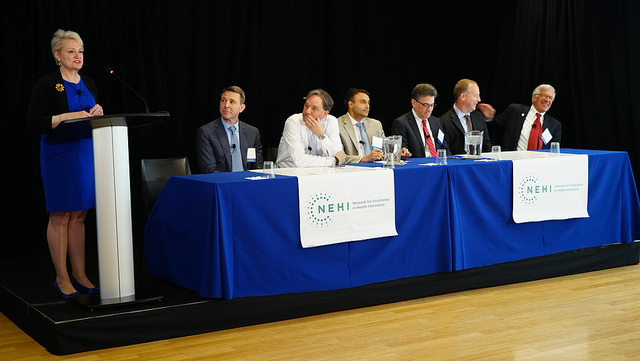Today, May 10, at the Kaiser Permanente Center for Total Health, the Network for Excellence in Health Innovation (NEHI) convened experts and launched a project to frame a plan for advancing “Health Care Without Walls” — the type of 21st century health care system that technology now makes possible.
Drawing on existing and future innovations, new modes of care delivery, and an augmented health care work force, much of health care can now be shifted out of conventional institutional settings through modalities that transcend time and distance. Health care can be brought closer to individuals in their homes, communities, or workplaces, dramatically expanding access for the underserved, frail, or elderly, and increasing convenience for everyone. Under the right circumstances, the efficiency and effectiveness of care could be increased, and costs sharply lowered.
At the NEHI convening, Keith Montgomery, executive director of the Center for Total Health, presented one of Kaiser Permanente’s own “Imagining Care Anywhere” visions for the future: a scenario involving a fictional dementia patient, Leo. A panel of executives from health systems, health information technology and health services companies – along with Aneesh Chopra, the former chief technology officer of the Obama administration — built on that vision, discussing where health care could be by 2025 if rebuilt and reconfigured on new technology platforms.
Yet a system of “health care without walls” won’t come about without dismantling many obstacles, and a second panel of experts will address these barriers at the convening. The legal and regulatory environment, particularly at the state level, has not adapted quickly enough to technologies like telehealth and remote monitoring. Longstanding state scope-of-practice battles already lead to an inflexible health care work force and could further impede a shift to more distributed care. Many insurers are reluctant to pay for telehealth when some evidence suggests that, to date, it has added to the costs of care already provided, rather than displacing them. And a range of human factors – including how humans behave in relation to technology — may also stand in the way.
NEHI’s year-long project will examine these forces through a series of “work streams,” and identify policies and other initiatives that can help to overcome these barriers. Only by toppling them can we achieve the sort of health care system that Dave and other Americans should rightly expect to have in place today.
NEHI is a nonprofit, non-partisan think tank and membership organization focused on enabling innovations that lead to better health care, smarter spending, and healthier people. In partnership with members from across the spectrum of health care, NEHI conducts research and produces thought leadership designed to stimulate that innovation and change. For more information, visit www.nehi.net.




